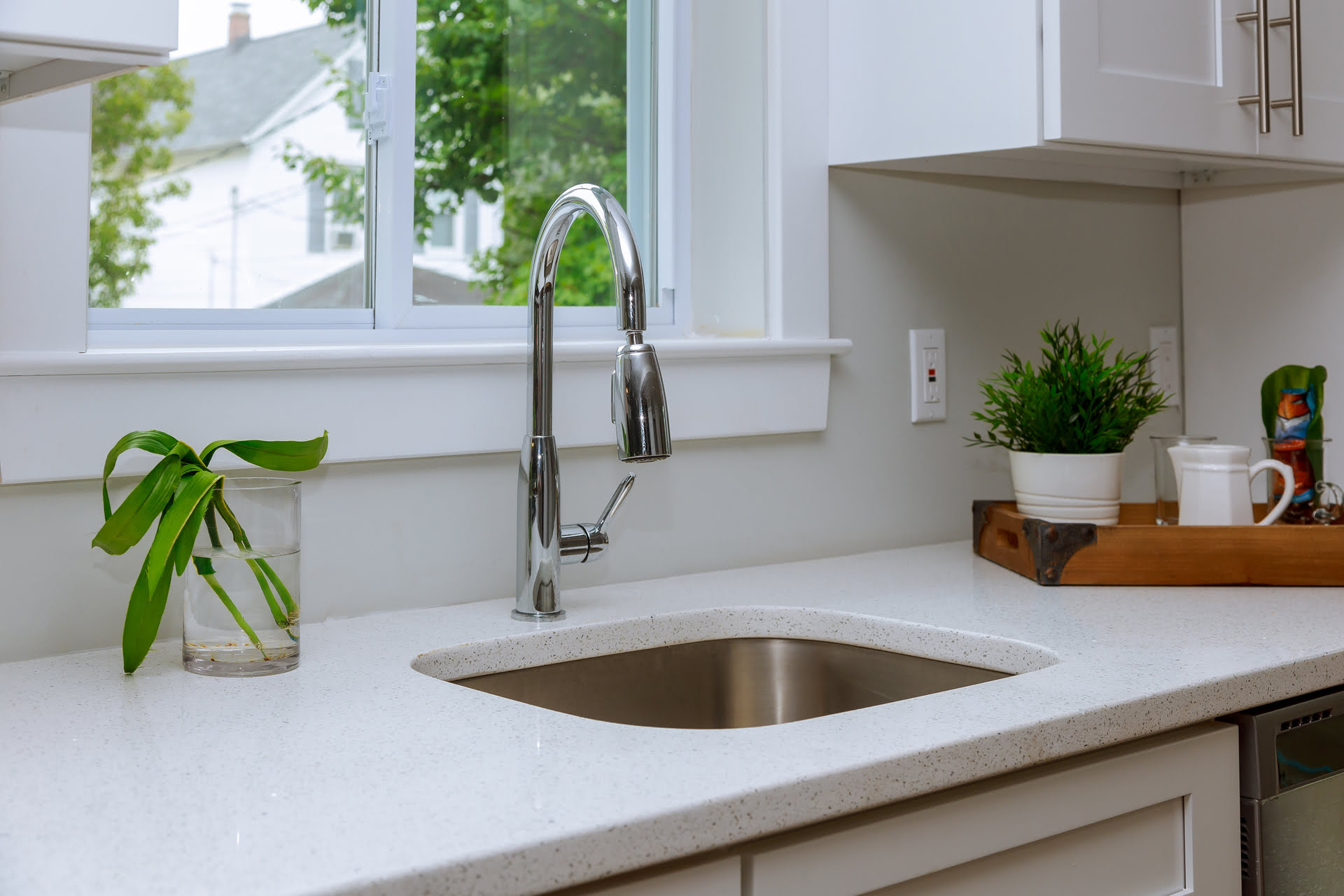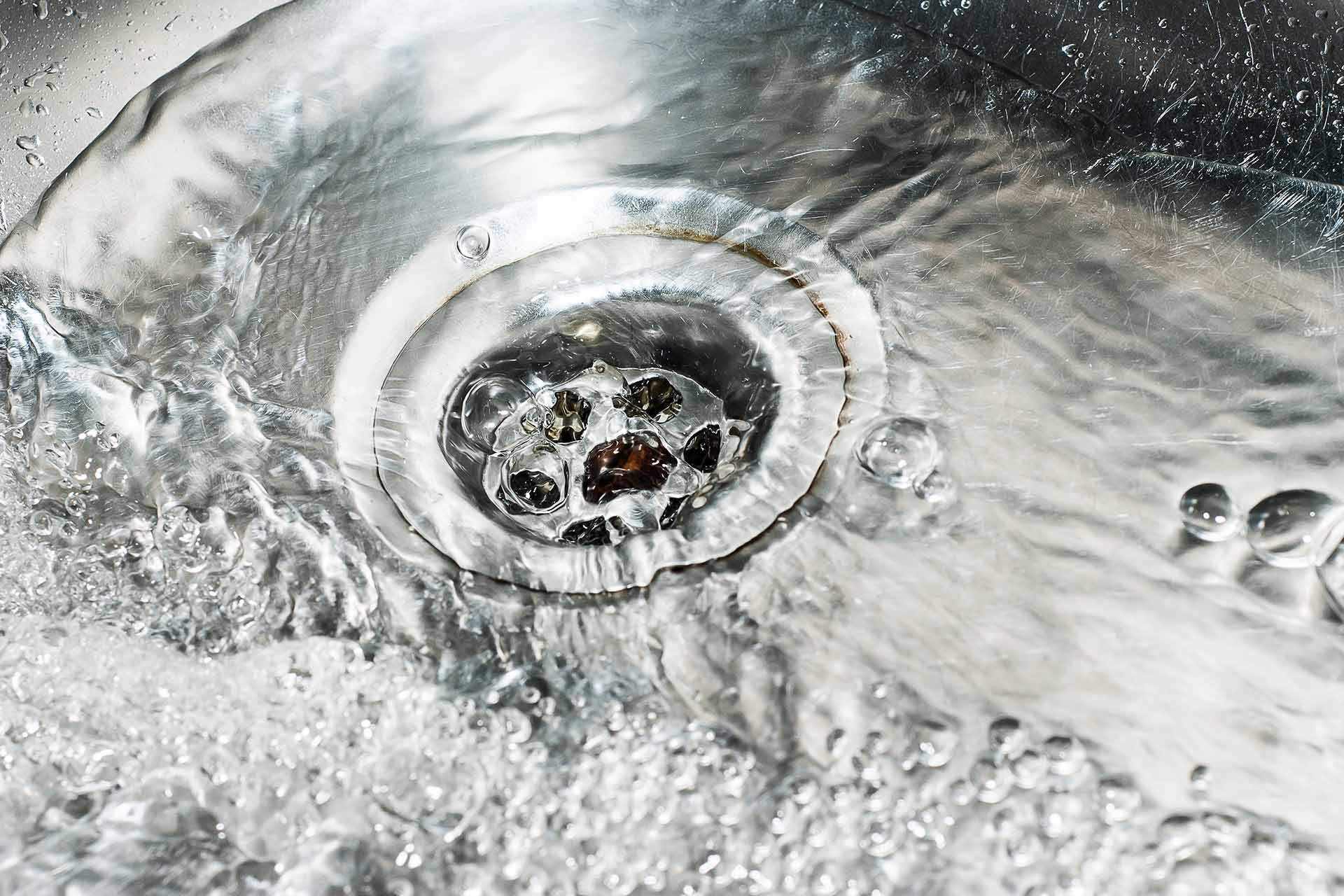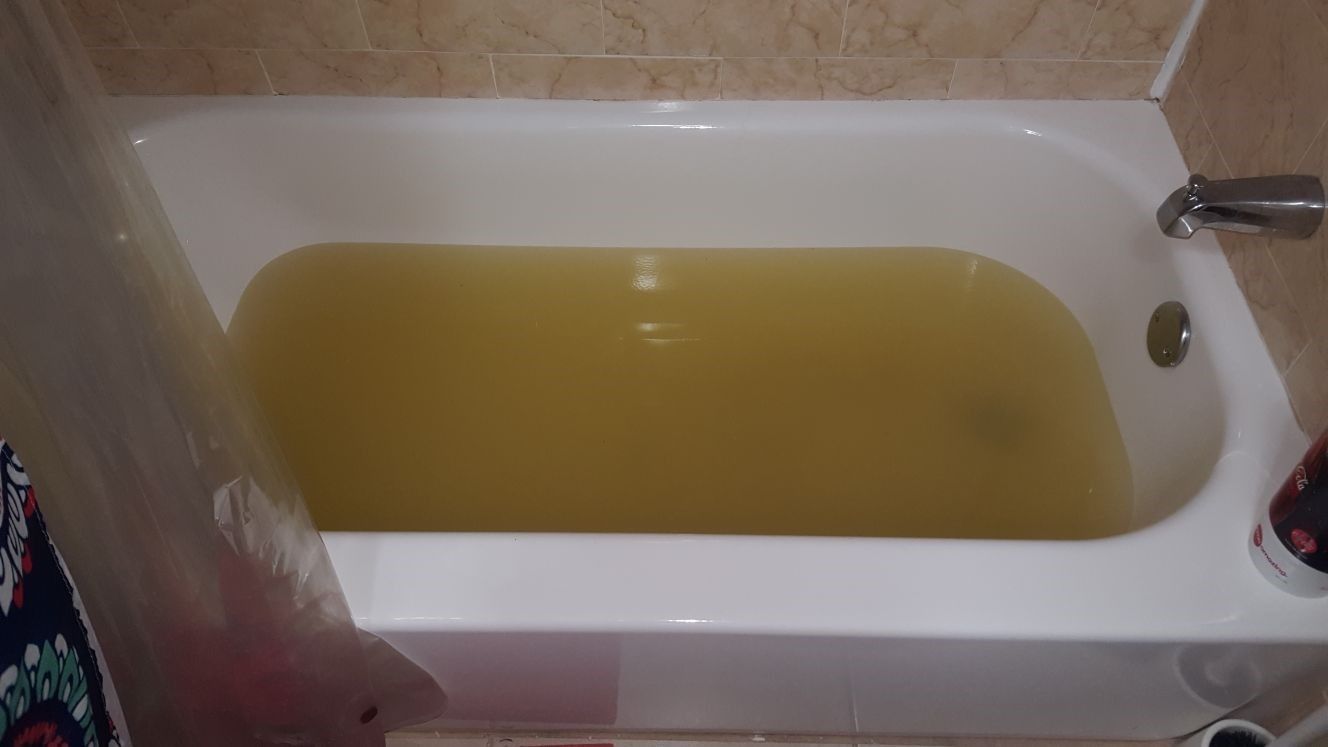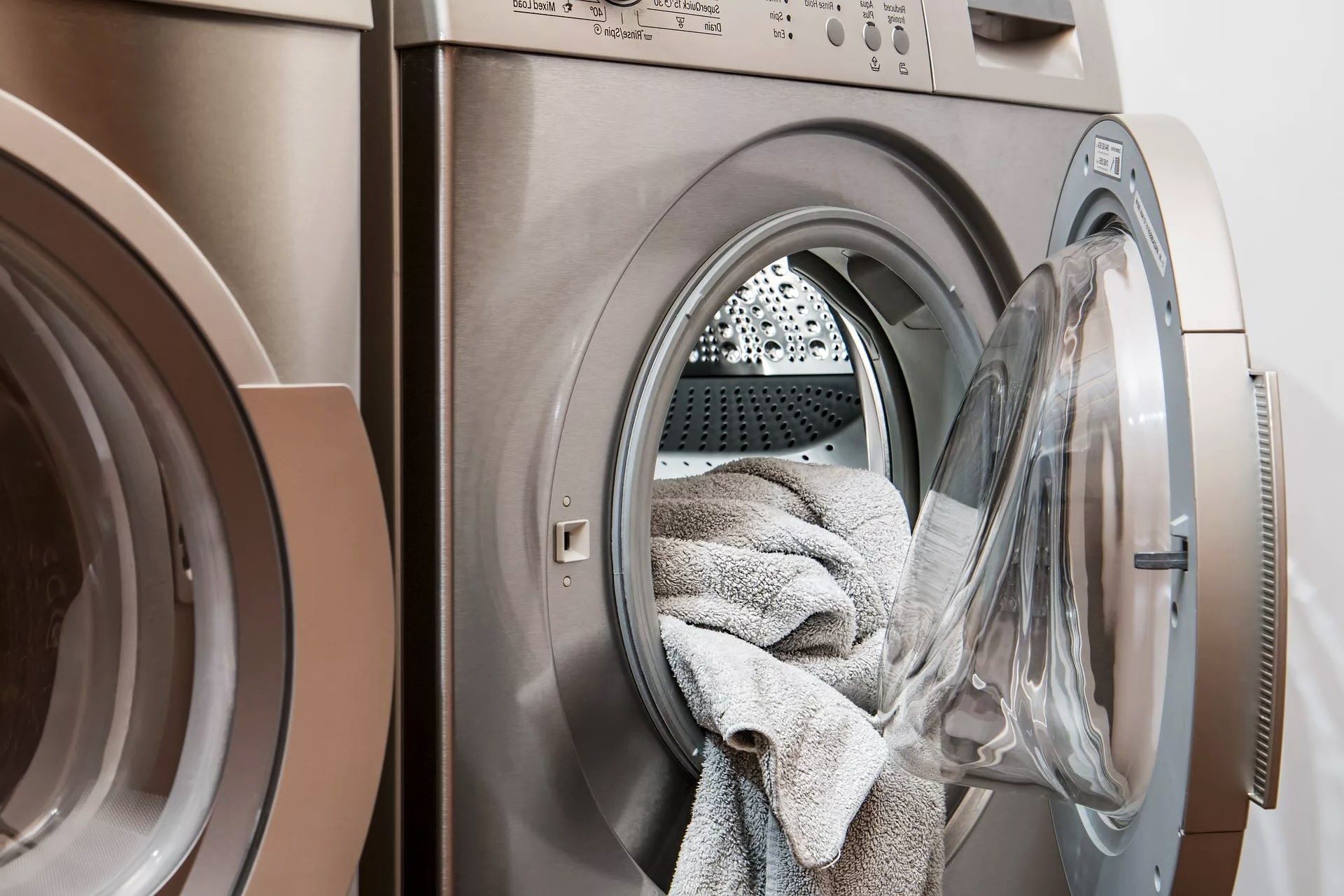

Articles
Why Does My Sink Smell Like Rotten Eggs
Modified: December 7, 2023
Discover the reasons why your sink smells like rotten eggs and learn how to get rid of this odor with our helpful articles.
(Many of the links in this article redirect to a specific reviewed product. Your purchase of these products through affiliate links helps to generate commission for Storables.com, at no extra cost. Learn more)
Introduction
Have you ever walked into your kitchen or bathroom and been hit with an unpleasant odor that smells like rotten eggs? If so, you’re not alone. The presence of a foul smell in sinks is a common issue that many people encounter. While this odor can be off-putting, understanding the reasons behind it can help you address the problem and get rid of the unpleasant smell.
The rotten egg smell in sinks can be attributed to various factors, ranging from bacterial growth in the drain to issues with the water supply. By identifying the root cause, you can take the necessary steps to eliminate the odor and prevent it from recurring in the future.
In this article, we will explore the common causes of a sink smelling like rotten eggs and discuss effective solutions to tackle the problem. Additionally, we will provide preventive measures to ensure that you don’t have to deal with this unpleasant odor again.
Note: Before attempting any solutions, it is important to ensure your safety. If you are unsure or uncomfortable with the process, it is always best to consult a professional plumber.
Key Takeaways:
- Combat the rotten egg smell in sinks by cleaning and disinfecting the drain, flushing with hot water, using a baking soda and vinegar solution, and seeking professional help if the odor persists.
- Prevent the return of the foul odor by maintaining regular cleaning, mindful waste disposal, clear ventilation systems, scheduling plumbing inspections, and addressing water quality concerns.
Read more: Why Does Washer Smell Like Rotten Eggs
Common Causes of Rotten Egg Smell in Sinks
The presence of a rotten egg smell in sinks can be attributed to several factors. Understanding the underlying causes will help you address the issue effectively. Here are the most common reasons why your sink may emit a foul odor:
- Bacterial Growth in the Drain: Over time, organic matter such as food particles, hair, and soap scum can accumulate in the drain. This creates an ideal environment for bacteria to thrive, leading to the production of hydrogen sulfide gas, which is responsible for the rotten egg smell.
- Hydrogen Sulfide Gas Buildup: Sometimes, the water in your plumbing system contains high levels of sulfur compounds, which can react with bacteria in the drain and produce hydrogen sulfide gas. This gas has a distinct rotten egg odor that can be detected when you run water down the sink.
- Water Supply Issues: In some cases, the rotten egg smell may not originate from your sink drain but rather from the water supply itself. If your water comes from a well, it may contain sulfur bacteria that produce hydrogen sulfide gas. This gas can sometimes be released when you turn on the faucet.
- Blocked Ventilation System: Every plumbing system has a ventilation system that allows air to flow and equalizes pressure. If the ventilation system is blocked or improperly installed, it can cause sewer gases to build up in the drain, resulting in a rotten egg smell.
- Sewer Line Problems: A damaged or clogged sewer line can lead to sewer gases escaping into your sink or drain, causing a foul odor. This issue requires immediate attention from a professional plumber to assess and resolve the problem.
Now that we have explored the common causes of a sink smelling like rotten eggs, let’s move on to the solutions to get rid of this unpleasant odor.
Bacterial Growth in the Drain
One of the most common causes of a rotten egg smell in sinks is the growth of bacteria in the drain. Over time, organic matter such as food particles, hair, and soap scum can accumulate in the drain, creating a breeding ground for bacteria. These bacteria produce hydrogen sulfide gas, which has that distinct rotten egg odor.
To address the issue of bacterial growth in the drain, follow these steps:
- Boiling Water: Start by pouring boiling water down the drain to help loosen and flush away any debris that may be contributing to the bacterial growth.
- Cleaning and Disinfecting: Next, use a mixture of warm water and dish soap to clean the drain thoroughly. You can also use a bottle brush or a pipe cleaner to scrub away any stubborn residue or buildup.
- Bleach Solution: To disinfect the drain, prepare a solution of one part bleach and ten parts water. Slowly pour this mixture down the drain and leave it for about 15 minutes. Then, flush the drain with cold water to rinse away the bleach solution.
- Regular Maintenance: To prevent bacterial growth in the drain, it’s important to establish a regular cleaning routine. Regularly flush the drain with hot water and use a drain cleaner or enzyme-based cleaner to break down any organic matter that may have accumulated.
Keep in mind that when using bleach or any chemical cleaners, it’s essential to follow the manufacturer’s instructions and take precautions to protect yourself and the environment. Additionally, never mix bleach with other cleaning agents, as it can produce toxic fumes.
If the rotten egg smell persists even after cleaning and disinfecting the drain, there may be other underlying issues. In such cases, it’s advisable to consult a professional plumber who can identify and resolve the problem effectively.
Now that we’ve addressed the issue of bacterial growth in the drain, let’s move on to the next common cause of a rotten egg smell in sinks.
Hydrogen Sulfide Gas Buildup
Another common cause of a rotten egg smell in sinks is the buildup of hydrogen sulfide gas. This gas is produced when certain bacteria come into contact with sulfur compounds in water or organic matter in the drain. The distinct smell that resembles rotten eggs is a telltale sign of hydrogen sulfide gas.
To address the issue of hydrogen sulfide gas buildup and eliminate the foul odor, consider the following steps:
- Flushing the System: Start by running hot water for several minutes to flush out any stagnant water in the pipes. This can help remove any sulfur compounds that may have accumulated.
- Activate the Ventilation System: Ensure that the ventilation system in your plumbing is functioning properly. A blocked or malfunctioning ventilation system can cause sewer gases, including hydrogen sulfide, to build up in the drain.
- Check the Water Heater: Inspect your water heater for any signs of corrosion or damage. A faulty water heater can be a source of the rotten egg smell. Consider contacting a professional to assess and fix the issue.
- Water Treatment Options: If the rotten egg smell persists, you may need to consider water treatment options. Installing a water treatment system, such as activated carbon filters or an oxidizing filter, can help remove sulfur compounds from your water supply.
It’s important to note that addressing the issue of hydrogen sulfide gas buildup in your sink may require professional assistance, especially if it involves your water heater or extensive plumbing system. Consulting a plumber will ensure that the problem is accurately diagnosed and effectively resolved.
Now that we’ve tackled the issue of hydrogen sulfide gas buildup, let’s move on to discussing potential water supply issues as another potential cause of the rotten egg smell in sinks.
Water Supply Issues
Water supply issues can also be a contributing factor to the presence of a rotten egg smell in sinks. If your water comes from a well, it may contain sulfur bacteria that produce hydrogen sulfide gas. This gas can give off a distinct rotten egg odor when you turn on the faucet.
If you suspect that water supply issues are causing the foul smell in your sink, here are some steps you can take to address the problem:
- Test Your Water: Start by getting your water tested by a professional. A comprehensive water analysis will determine the presence of sulfur bacteria and other contaminants that may be causing the smell.
- Water Filtration System: Consider installing a water filtration system specifically designed to address sulfur odor issues. This may involve using activated carbon filters, chlorination systems, or aeration devices to remove the sulfur compounds from the water.
- Shock Chlorination: In some cases, shock chlorination may be necessary to eliminate the sulfur bacteria in your well. This process involves adding a concentrated chlorine solution to your well, followed by flushing the entire system to remove any remaining bacteria.
- Regular Maintenance: To prevent water supply issues and the associated rotten egg smell, it’s important to regularly check and maintain your well or water supply system. This may involve cleaning or disinfecting the well or implementing regular water treatment methods.
Addressing water supply-related issues can be complex, and it’s best to consult with a professional water treatment specialist or plumber who has expertise in dealing with water quality problems. They can help recommend the most appropriate solutions for your specific situation.
Now that we’ve explored water supply issues as a possible cause of the rotten egg smell in sinks, let’s move on to discussing the importance of checking the ventilation system.
Read more: Why Does Laundry Room Smell Like Rotten Eggs
Blocked Ventilation System
A blocked or improperly installed ventilation system can contribute to the foul odor of rotten eggs in sinks. The ventilation system in your plumbing allows air to flow freely, equalizing pressure and preventing the buildup of sewer gases. When this system is blocked or not functioning correctly, sewer gases, including hydrogen sulfide, can accumulate in the drain and cause an unpleasant smell to emanate from your sink.
To address a blocked ventilation system and eliminate the rotten egg smell, consider the following steps:
- Inspect the Ventilation System: Check the vents on your roof to ensure they are not obstructed by debris, such as leaves or animal nests. Use a flashlight or mirror to look inside the vents and determine if there are any blockages.
- Remove Obstructions: If you notice any blockages in the vents, carefully remove them with gloved hands or a long tool, taking precautions to avoid injury or damage to the vent. Clearing the obstructions will allow proper airflow and ventilation in your plumbing system.
- Clean the Ventilation System: If the blockage in the vents is extensive or difficult to remove, it may be necessary to clean the ventilation system thoroughly. You can enlist the help of a professional plumber, who will have the expertise and equipment to clean the vents effectively.
- Regular Maintenance: To prevent future blockages and ensure the proper functioning of the ventilation system, it’s essential to establish a regular maintenance routine. This may involve inspecting and cleaning the vents periodically to prevent debris from accumulating.
A well-maintained and properly functioning ventilation system is crucial in preventing the buildup of sewer gases and eliminating the rotten egg smell in your sink. If you’re unsure how to address a blocked ventilation system or if the unpleasant odor persists after clearing the vents, it’s advisable to seek professional assistance from a plumber to assess and resolve the issue.
Now that we’ve discussed the potential issue of a blocked ventilation system, let’s move on to the next common cause of a rotten egg smell: sewer line problems.
Sewer Line Problems
Sewer line problems can be a significant underlying cause of a rotten egg smell in sinks. A damaged or clogged sewer line can lead to the escape of sewer gases, including hydrogen sulfide, into your sink or drain, resulting in a foul odor.
If you suspect that sewer line problems are causing the rotten egg smell, it’s crucial to address the issue promptly to prevent further damage and health hazards. Here are some steps to consider:
- Professional Inspection: Contact a professional plumber who specializes in sewer line issues. They will conduct a thorough inspection using specialized equipment, such as a sewer camera, to identify any blockages, leaks, or damage in your sewer line.
- Sewer Line Cleaning: If the inspection reveals a clog or buildup in the sewer line, the plumber may recommend cleaning the line. This can be done using techniques such as hydro jetting, which uses high-pressure water to remove obstructions and debris from the pipe walls.
- Repair or Replacement: In cases where the sewer line is damaged or severely blocked, repair or replacement may be necessary. The plumber will assess the extent of the issue and recommend the most appropriate course of action to ensure the proper functioning of your sewer line.
- Preventive Measures: To prevent future sewer line problems and the associated odor, it’s essential to adopt preventive measures. This may include exercising caution when disposing of materials in your drains, avoiding flushing non-biodegradable items or excessive amounts of grease, and regularly scheduling professional sewer line inspections and maintenance.
Sewer line problems can be complex and are best handled by a professional plumber with experience in sewer line repair and maintenance. Attempting to address these issues without proper expertise can lead to further damage and costly repairs.
Now that we’ve explored the common causes of a rotten egg smell in sinks and discussed potential solutions, let’s move on to the final section, which focuses on how to get rid of the smell and prevent its recurrence in the future.
Pour a mixture of baking soda and vinegar down the drain, followed by hot water. This can help break down and remove any organic matter causing the rotten egg smell.
How to Get Rid of the Rotten Egg Smell
Dealing with a rotten egg smell in sinks can be unpleasant, but fortunately, there are several effective methods to get rid of the odor. Here are some steps you can take to eliminate the rotten egg smell:
- Cleaning and Disinfecting the Drain: Start by thoroughly cleaning and disinfecting the drain. Use warm water and dish soap to remove any debris or buildup. Scrub the drain with a brush to ensure a deep clean.
- Flushing the Drain with Hot Water: After cleaning the drain, run hot water for several minutes to flush out any remaining odor-causing compounds. This helps remove any lingering bacteria or trapped particles in the drain.
- Using Baking Soda and Vinegar Solution: Create a natural cleaning solution by mixing baking soda and vinegar. Pour this mixture down the drain and let it sit for about 30 minutes. Then, flush the drain with hot water. Baking soda and vinegar can help neutralize odors and clean the drain.
- Calling a Professional Plumber: If the smell persists or if you suspect there are underlying issues with your plumbing system, it’s best to consult a professional plumber. They can conduct a thorough assessment and provide targeted solutions to address the problem.
It’s important to note that prevention is key to avoiding the recurrence of a rotten egg smell. By practicing good drain maintenance and implementing preventive measures, you can minimize the chances of experiencing this unpleasant odor in the future.
Now, let’s explore some preventive measures to help ensure that you don’t have to deal with the rotten egg smell in your sink again.
Cleaning and Disinfecting the Drain
One of the first steps to get rid of the rotten egg smell in your sink is to thoroughly clean and disinfect the drain. Over time, organic matter such as food particles, grease, and soap scum can accumulate in the drain, providing a fertile breeding ground for bacteria. These bacteria produce hydrogen sulfide gas, which is responsible for the unpleasant odor that resembles rotten eggs.
Here’s how you can clean and disinfect your drain:
- Remove Debris: Start by removing any visible debris or gunk from the drain opening. Use a pair of gloves to protect your hands and a wire brush or toothbrush to gently scrub away any buildup.
- Boiling Water: Pour a kettle of boiling water down the drain. The hot water will help break down any grease or solidified substances that may be clinging to the drain walls.
- Use a Baking Soda and Vinegar Solution: Create a natural cleaning solution by mixing 1/2 cup of baking soda and 1/2 cup of vinegar. Pour this mixture down the drain and let it fizz for about 15 minutes. The reaction between baking soda and vinegar helps break down organic matter and neutralize odors.
- Flush with Hot Water: After the baking soda and vinegar solution has had time to work, flush the drain with hot water. This will wash away any remaining residue and ensure a thorough clean.
- Repeat if Necessary: If the rotten egg smell persists after the initial cleaning, you may need to repeat the process or try alternative methods. Stubborn buildup or severe bacterial growth may require multiple cleaning sessions to completely eliminate the odor.
Regularly cleaning and disinfecting your drain can help prevent the buildup of bacteria and keep unpleasant odors at bay. Consider incorporating this task into your routine home maintenance to maintain a fresh-smelling sink.
Now that we’ve covered cleaning and disinfecting the drain, let’s move on to the next step in getting rid of the rotten egg smell in your sink.
Flushing the Drain with Hot Water
Another effective method to get rid of the rotten egg smell in your sink is to flush the drain with hot water. Hot water helps to dislodge and remove any trapped debris, bacteria, and odor-causing substances that may be clinging to the drain walls.
Here’s how you can flush the drain with hot water:
- Remove any visible debris: Before flushing the drain, remove any visible debris or gunk that may be present near the drain opening. Use a glove-covered hand or a wire brush to gently clear away any buildup.
- Run hot water: Turn on the hot water tap in your sink and let it run at its highest temperature. Allow the hot water to flow directly into the drain for several minutes. The heat helps to break up and dislodge any accumulated residue and bacteria.
- Be cautious: Be mindful of the hot water temperature and take appropriate safety precautions to avoid scalding. Avoid contact with the hot water as much as possible and never leave children unattended near running hot water.
- Monitor the smell: As you flush the drain with hot water, pay attention to any changes in the odor. In many cases, the hot water alone can help eliminate or significantly reduce the rotten egg smell.
- Repeat if necessary: If the lingering odor persists after the first attempt, consider repeating the process a few times to ensure a thorough flush. This can be particularly helpful if the odor is stubborn or if there is significant bacterial growth in the drain.
Flushing the drain with hot water is a simple and effective method to help eliminate the rotten egg smell. It’s a good practice to incorporate regular hot water flushes into your routine drain maintenance to prevent odor buildup and maintain a fresh-smelling sink.
Now that we’ve covered flushing the drain with hot water, let’s move on to the next method: using a baking soda and vinegar solution to tackle the odor.
Using Baking Soda and Vinegar Solution
An effective and natural method to get rid of the rotten egg smell in your sink is to use a baking soda and vinegar solution. This combination creates a powerful reaction that helps break down organic matter, neutralize odors, and clean the drain.
Here’s how you can use a baking soda and vinegar solution:
- Remove any visible debris: Before starting the cleaning process, remove any visible debris or buildup near the drain opening. Use a glove-covered hand or a brush to clear away any gunk.
- Pour baking soda: Start by pouring about half a cup of baking soda directly into the drain. Make sure to distribute it evenly across the surface of the drain for maximum coverage.
- Pour vinegar: After adding the baking soda, pour about one cup of vinegar down the drain. As the vinegar reacts with the baking soda, it creates a fizzing reaction that helps break down organic matter and neutralize odors.
- Allow the solution to sit: Leave the baking soda and vinegar solution in the drain for about 15 minutes. During this time, the mixture will penetrate the drain, loosening any residue and eliminating the rotten egg smell.
- Flush with hot water: After the solution has had time to work, flush the drain with hot water. Let the hot water flow through the drain for several minutes to wash away any remaining debris and ensure a thorough clean.
- Repeat if necessary: If the rotten egg smell lingers after the initial application, you may need to repeat the process a few times to completely eliminate the odor. Stubborn buildup or severe bacteria growth may require multiple attempts.
Using a baking soda and vinegar solution not only helps eliminate odors but also serves as a natural and environmentally friendly alternative to harsh chemical cleaners. Include this method in your regular drain maintenance routine to keep your sink smelling fresh and clean.
Now that we’ve covered using a baking soda and vinegar solution, let’s move on to the final method: when to call a professional plumber for assistance in dealing with the rotten egg smell.
Calling a Professional Plumber
If you’ve tried various methods to get rid of the rotten egg smell in your sink and the odor persists, it may be time to call a professional plumber. A professional plumber has the expertise and specialized equipment to diagnose and resolve more complex issues related to your plumbing system.
Here are some situations where it’s recommended to call a professional plumber:
- Persistent odor: If the rotten egg smell continues even after attempting DIY solutions, it’s a sign that there may be an underlying issue that requires professional attention. A professional plumber can inspect the drain, sewer lines, or ventilation system to identify the source of the odor and provide targeted solutions.
- Water supply concerns: If you suspect the water supply is the root cause of the rotten egg smell, a professional plumber can assess the water quality and recommend appropriate water treatment options. They have the knowledge and equipment to test the water for sulfur compounds or other contaminants and offer solutions tailored to your specific situation.
- Complex plumbing system: If your plumbing system is intricate, with multiple interconnected drains, vents, or waste pipes, it can be challenging to pinpoint the exact source of the odor. Calling a professional plumber ensures that an experienced eye can inspect and troubleshoot the system thoroughly, identifying any hidden issues that may be causing the smell.
- Safety concerns: If you’re unsure about the safety or proper handling of certain cleaning products or DIY methods, it’s always best to seek professional help. Plumbers are trained in plumbing safety protocols and can handle potentially hazardous situations, ensuring the well-being of both you and your plumbing system.
Remember, professional plumbers have the knowledge and experience to tackle complex plumbing problems effectively. They can provide expert guidance, address underlying issues, and help you achieve a fresh-smelling sink without the worry of prolonged odor issues.
Now that we’ve discussed the option of calling a professional plumber, let’s move on to preventive measures to ensure the rotten egg smell doesn’t return in the future.
Preventing the Rotten Egg Smell in the Future
To prevent the return of the rotten egg smell in your sink, it’s important to adopt preventive measures that will keep your plumbing system clean and odor-free. By practicing good habits and taking proactive steps, you can minimize the chances of experiencing this unpleasant odor again. Here are some preventive measures to consider:
- Maintain regular cleaning: Establish a routine for cleaning and disinfecting your drain. Regularly remove debris, flush the drain with hot water, and use natural cleaning solutions like baking soda and vinegar to keep the drain clear of buildup and bacteria.
- Be mindful of what goes down the drain: Avoid disposing of grease, oil, or food scraps down the drain, as these can contribute to clogs and bacterial growth. Instead, scrape leftover food into the trash or compost bin and dispose of cooking oil in a designated container.
- Use drain covers: Install drain covers or strainers to catch hair, food particles, and other debris before they enter the drain. Regularly clean the drain covers to prevent buildup and allow water to flow freely.
- Regularly check and maintain the ventilation system: Ensure that your plumbing system’s ventilation system is clear of obstructions and functioning properly. Clear any debris or blockages in the vents to allow for proper airflow and prevent the buildup of sewer gases.
- Get regular plumbing inspections: Schedule regular inspections by a professional plumber to assess the health of your plumbing system. They can identify potential issues before they develop into major problems and provide recommendations for preventive measures.
- Address water quality concerns: If you suspect that the foul odor originates from your water supply, consider installing a water treatment system to remove sulfur compounds and other contaminants. Consult a water treatment specialist to determine the most suitable solution for your specific needs.
By implementing these preventive measures, you can ensure that your sink remains fresh and free from the rotten egg smell. Remember, regular maintenance and proactive care are key to keeping your plumbing system in optimal condition.
Now, let’s conclude our discussion on preventing the rotten egg smell and wrap up the article.
Read more: Why Does My Kitchen Sink Smell Like Sewer
Conclusion
Dealing with a rotten egg smell in sinks can be an unpleasant and bothersome issue. However, understanding the common causes and effective solutions can help you tackle the problem and prevent it from recurring in the future.
We explored the various reasons why your sink may emit a foul odor reminiscent of rotten eggs, including bacterial growth in the drain, hydrogen sulfide gas buildup, water supply issues, blocked ventilation systems, and sewer line problems. Each of these factors requires specific attention and targeted solutions to eliminate the odor effectively.
To combat the rotten egg smell, we discussed several methods, such as cleaning and disinfecting the drain, flushing the drain with hot water, using a baking soda and vinegar solution, and when it’s necessary to call a professional plumber. These steps can help address the root cause of the odor and restore a fresh-smelling sink.
Furthermore, we emphasized the importance of preventive measures to ensure that the rotten egg smell does not return. Regular cleaning, mindful disposal of waste, maintaining a clear ventilation system, and scheduling plumbing inspections are essential in keeping your plumbing system in optimal condition and preventing odor issues.
Remember, if you are unsure or uncomfortable with any of the processes involved, it is always best to consult a professional plumber. They have the expertise and knowledge to accurately diagnose and address complex plumbing problems.
By implementing the preventive measures and following the solutions discussed in this article, you can keep your sink smelling fresh and free from the unpleasant odor of rotten eggs. With proper maintenance and care, your sink can remain a clean and pleasant area in your home.
Thank you for reading, and here’s to a fresh-smelling sink and a pleasant environment!
Frequently Asked Questions about Why Does My Sink Smell Like Rotten Eggs
Was this page helpful?
At Storables.com, we guarantee accurate and reliable information. Our content, validated by Expert Board Contributors, is crafted following stringent Editorial Policies. We're committed to providing you with well-researched, expert-backed insights for all your informational needs.













0 thoughts on “Why Does My Sink Smell Like Rotten Eggs”